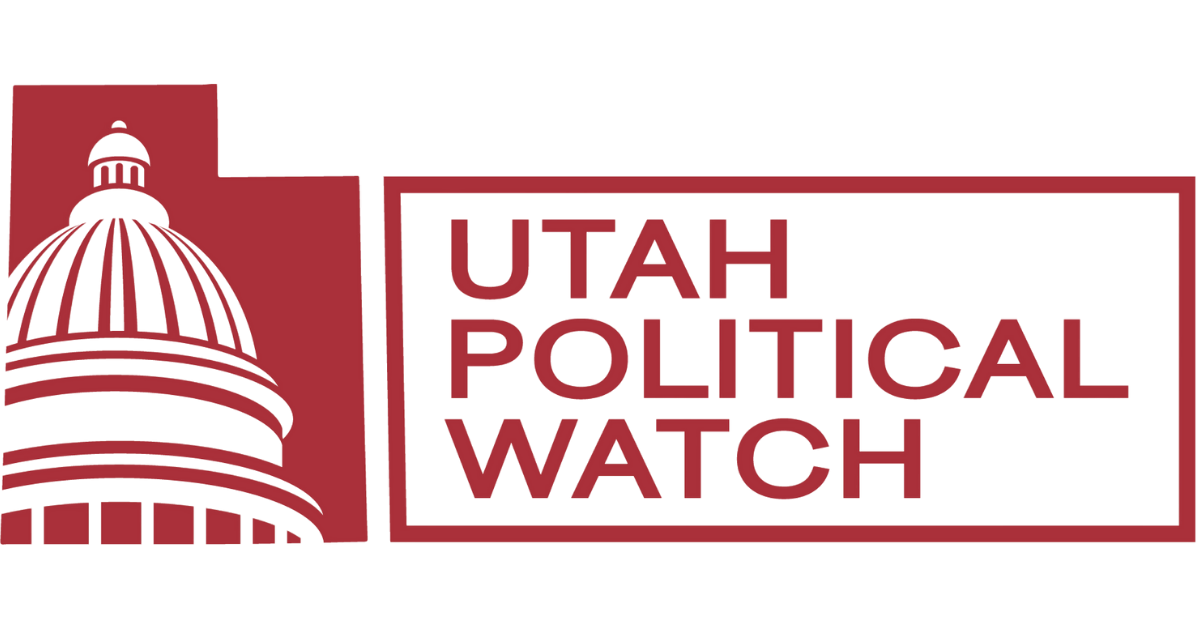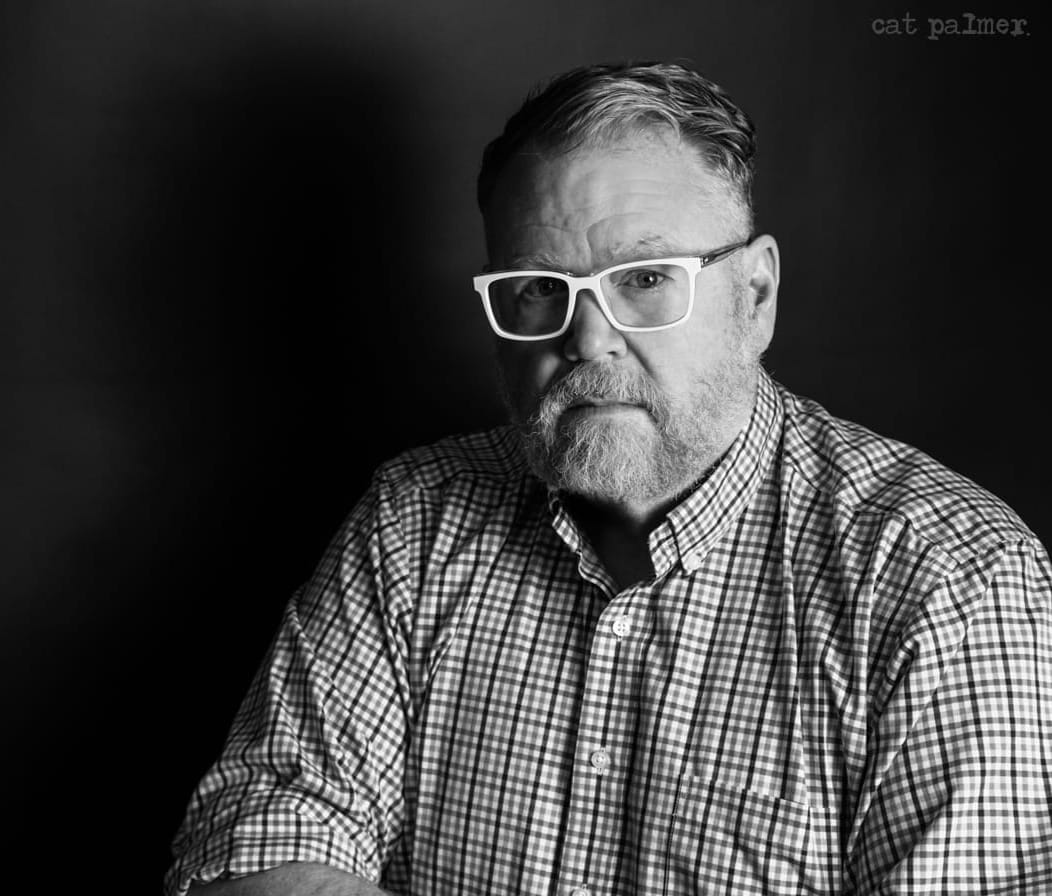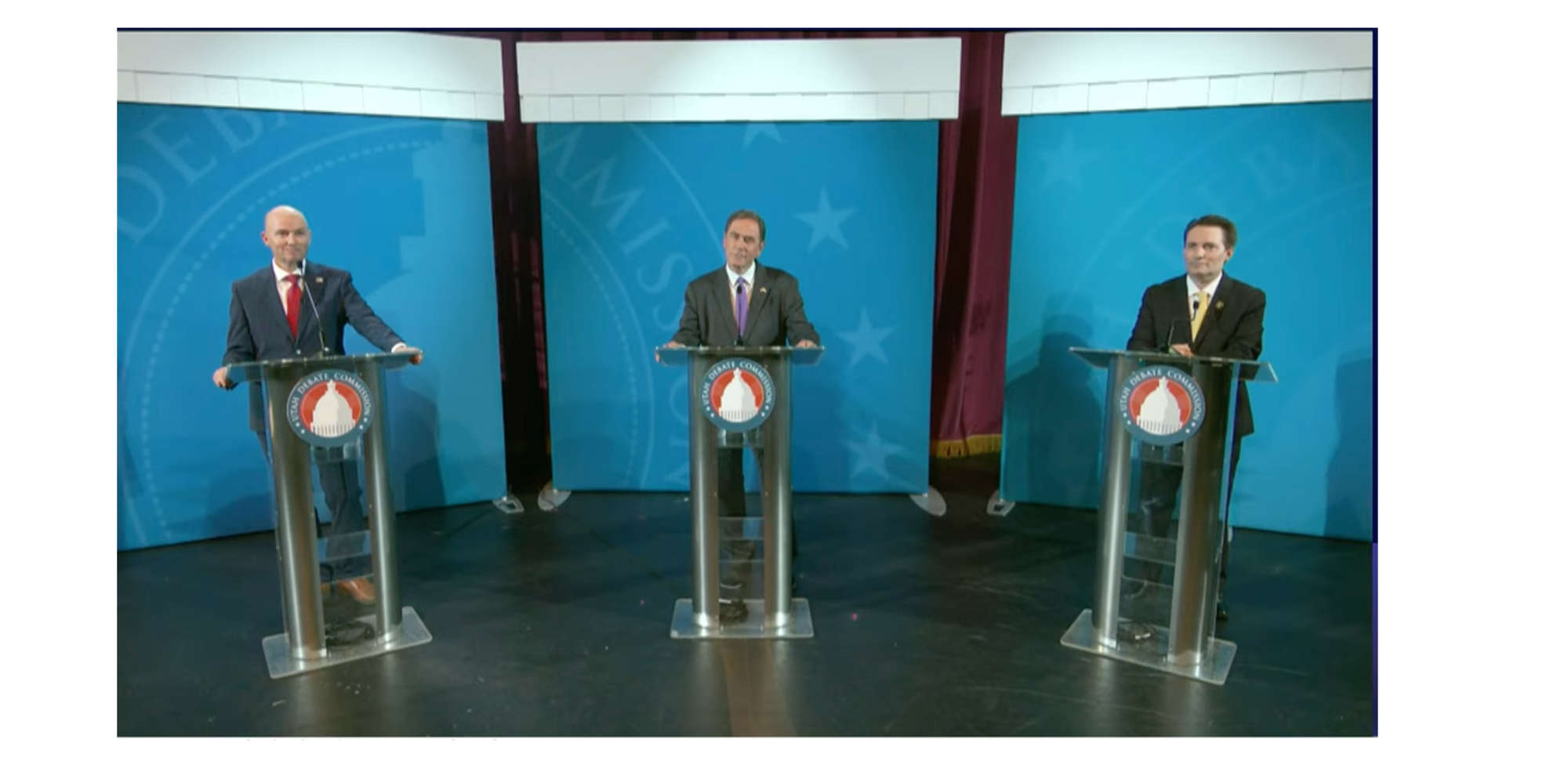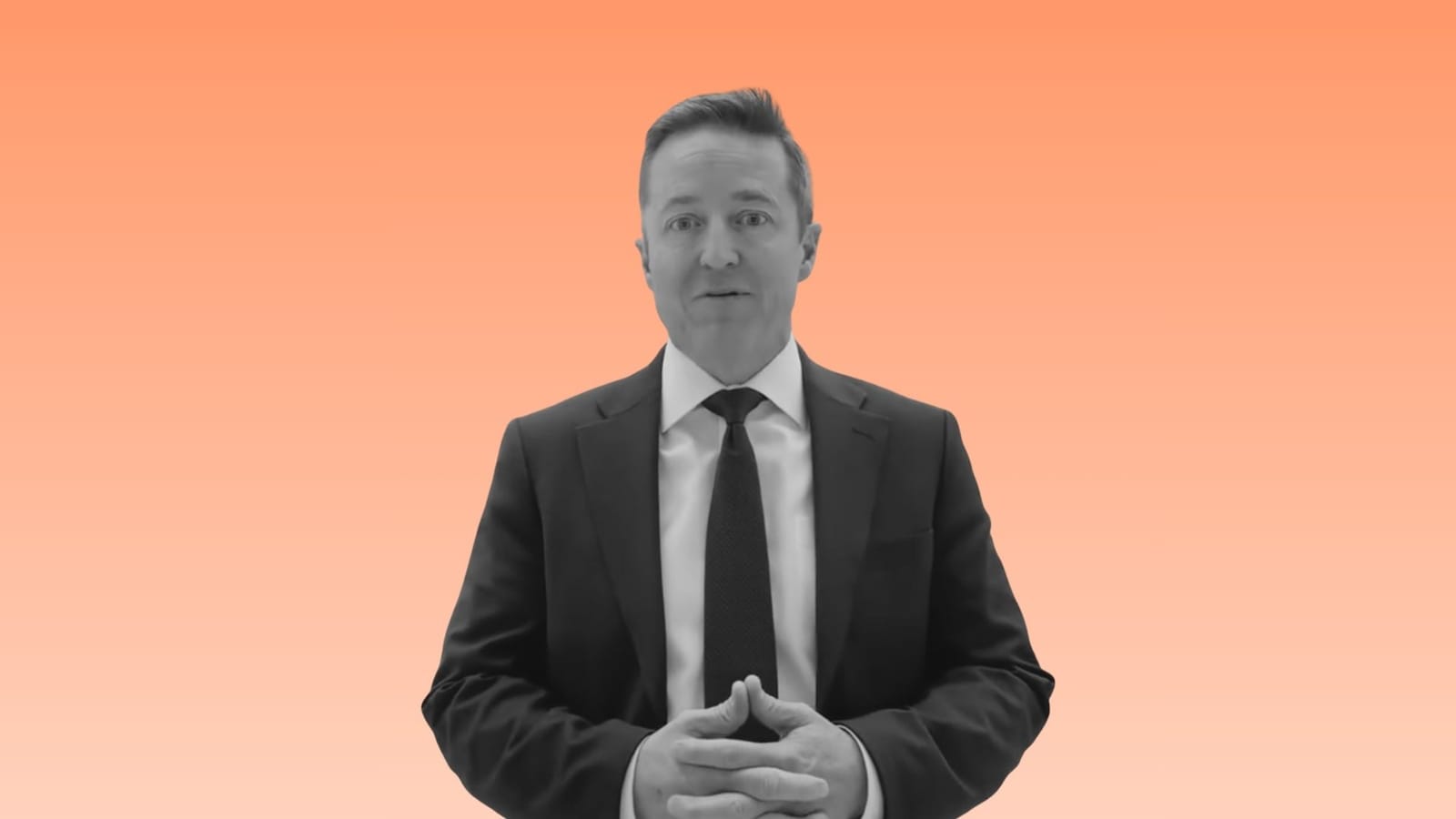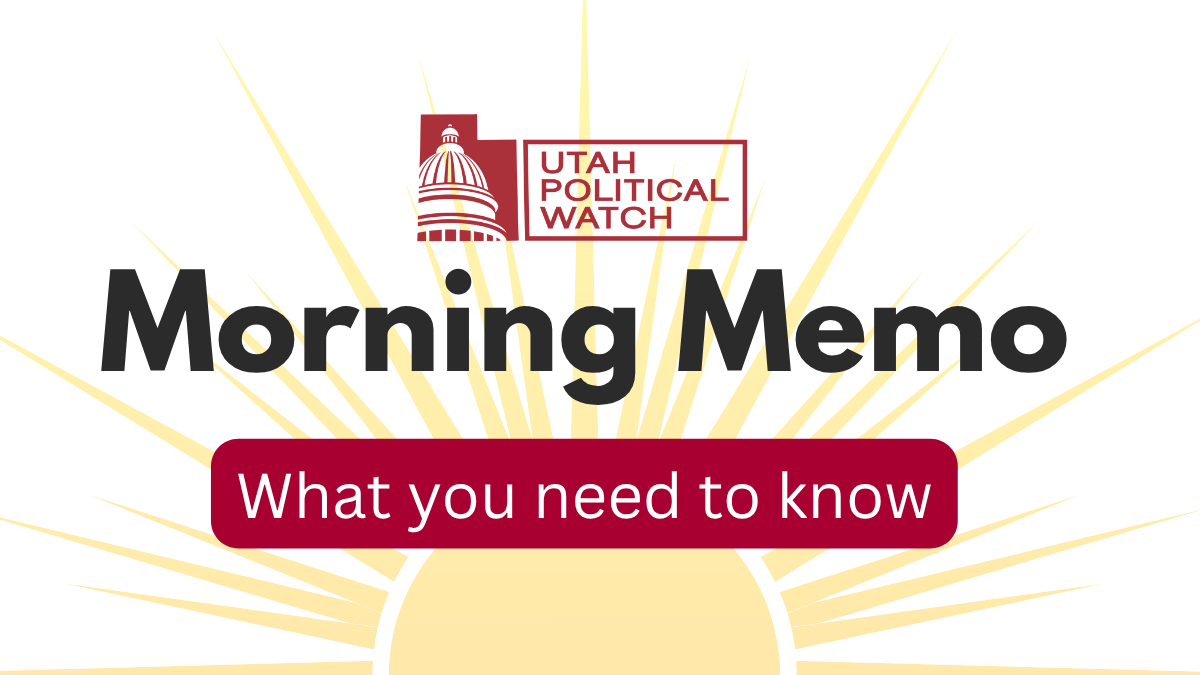Here are some quick thoughts on Wednesday night's three-way gubernatorial debate, which featured Republican Spencer Cox, Democrat Brian King and Libertarian J. Robert Latham.
The format of these debates, with set time limits for answers and rebuttals with few follow-up questions, is far too restrictive. With three candidates on the stage, the evening felt even more restrictive than usual.
Because of the compressed schedule and format, several important topics were almost completely ignored. The environment, school safety and public lands were not discussed. The only time the Great Salt Lake was mentioned was as time expired.
That lack of time was evident near the end when moderator Jason Perry allowed an extended back and forth between Cox and King on judicial nominations. That unexpected detour caused him to miscalculate how much time remained. Because of that time crunch, the final two questions to candidates were the eye-rolling "What makes Utah great?" and just a few seconds to say what they thought is the most pressing issue facing Utah.
Spencer Cox, the Republican incumbent, wasted no time taking a swipe at Democratic nominee Brian King. Cox clearly spent a good portion of his debate prep looking for ways to attack King's record as a lawmaker, repeatedly pointing out issues King voted against during his tenure in the Legislature.
"Let's talk about what we've done together over the past four years. The largest tax cut in our state's history, over $1.3 billion, despite my Democratic colleague voting against it. We passed the largest teacher raises in our state's history despite my Democratic colleague voting against it." Cox said.
In response to a question about political polarization in America, Cox said he "reached out" to Donald Trump, President Biden and Vice President Harris to discuss how to foster more unity and reduce polarization. King pounced on that, hanging Cox's flip-flop on endorsing Donald Trump after years of refusing to do so around his neck.
"This is the individual the governor endorsed. He endorsed a man who openly brags of sexually assaulting women. He endorsed a man who tried to overthrow our constitutional republic. This is the worst example we've seen on the stage of American politics in our lifetimes," King said.
Cox endorsed Trump just days after he was wounded during an assassination attempt at one of his campaign rallies. At the time, Cox said he had received assurances that Trump was committed to lowering the temperature on overheated campaign rhetoric. Those assurances turned out to be like so many other Trump promises. In the nearly two months since Cox's endorsement, Trump has continued to insult his political enemies and spout conspiracies.
Cox defended his Trump endorsement by pointing out lots of Utahns were going to vote for Trump in November.
"It's sad to me that my colleague would dismiss the vast majority of voters in our state who are going to support the former president," Cox said.
"Vast majority" is a bit of a stretch. Trump carried Utah with just 45.54% of the vote in 2016 and 58.13% in 2020.
When asked about the economy, Cox quickly shifted into cheerleader mode. This is right in his wheelhouse, as he loves talking about how Utah is at or near the top of all states in various economic rankings. He even trotted out his oft-repeated joke about building a wall around Utah and making California pay for it.
King got under Cox's skin a bit when he said his administration is not focused on Utahns in the middle and working class.
The best exchange of the night was about energy production. King said the Republican-controlled Legislature doesn't allow the free market to flourish by prioritizing coal-fired power plants over renewable sources.
Cox blamed "the left and the radical environmental movement" for onerous regulations that make transitioning to alternative energy sources, including nuclear, very difficult.
Latham wanted to make sure everyone knew he was a Libertarian. By my count, he said "Libertarian" at least 15 times during the hour he was on stage.
Latham repeatedly complained about Libertarians being left out of the Legislative process, which is a byproduct of not winning elections. He said proportional ranked choice voting, a complicated process that awards seats proportionally based on vote share, would remedy that situation. There are fewer than 20,000 registered Libertarians in Utah, making up just 1.2% of all active voters.
Twice during the evening, Cox slammed social media companies and crowing about the regulations the state passed to protect young users online. He failed to mention a federal judge blocked those regulations the day before because they likely violated the First Amendment.
Phil Lyman's desperate write-in candidacy was almost completely ignored during the hour-long debate until Latham made a joke during his closing statement, letting voters know they "don't have to write my name in."
